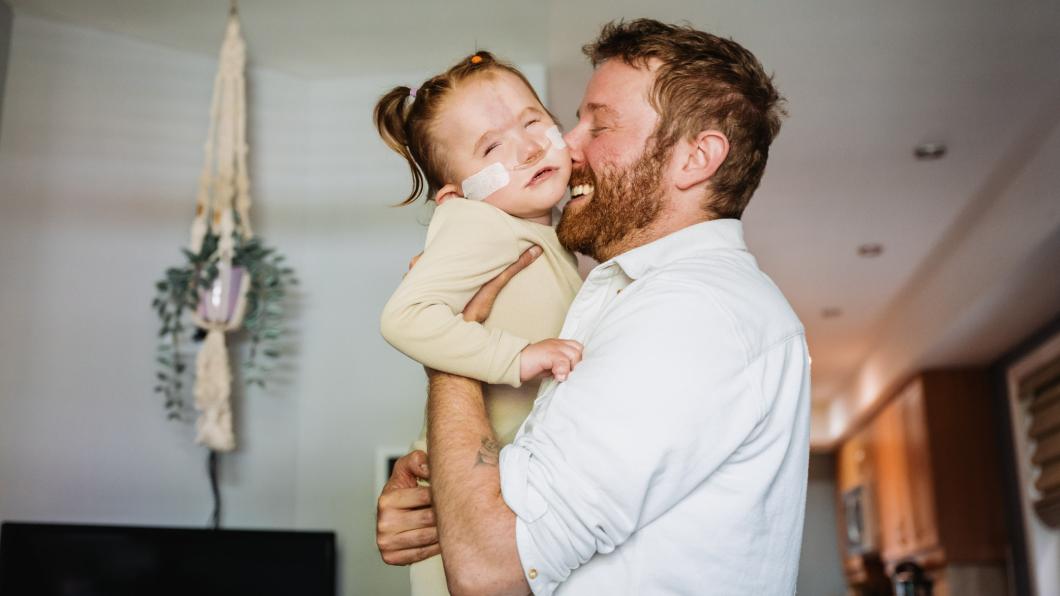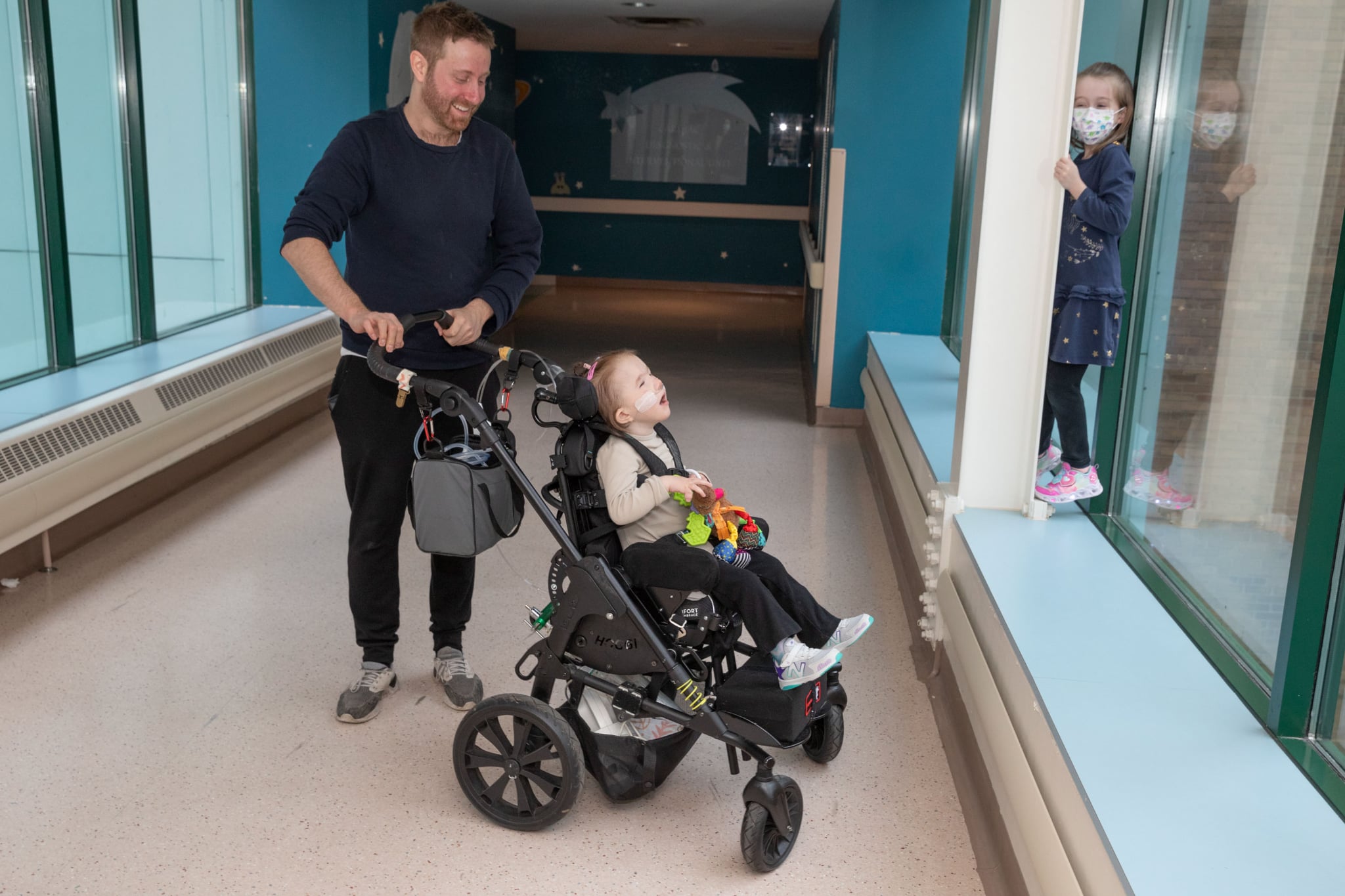
What my daughter taught me about human value
Robin Koczerginski and daughter Bree
By Robin Koczerginski
When I was younger, I believed a meaningful life was one I'd be proud to share in old age, sitting frail but content at a family gathering, surrounded by children and grandchildren, maybe even great-grandchildren bringing cups of tea to my bedside.
I imagined telling stories: backpacking through Guatemala, driving through the bush in Northern Ontario to do charitable work, romantic evenings out on the town with their grandmother. I’d offer wisdom, reflect on my mistakes, and hope to pass on a better path. It would all rest on a foundation of career and contribution, something that made a dent in the world, something lasting.
I had a recipe for a meaningful life: a heavy dose of impact, a dash of adventure, generous helpings of love and relationship, all baked in a base of longevity.
My internalization of this, shaped by the books I read, the movies I watched, and the history I absorbed, was the scaffolding of that imagined future.
But what if human value isn’t something we build over time, but something that exists in a single moment? What if it isn’t earned, but inherent?
When my daughter Bree burst into the world like a meteor crashing into my life, everything I thought I knew about meaning was shaken. Bree has a rare genetic condition called Trisomy 13, or Patau Syndrome. There’s no cure or treatment. It isn’t a disease; it’s an imprint, a fundamental part of who she is. She has an extra 13th chromosome tucked into every cell in her body.
The impact of this extra chromosome varies, but in most cases, it brings profound cognitive and physical disabilities. And even that is only relevant if the child survives, because the prognosis is devastating. We found out about Bree’s diagnosis during pregnancy. We were told she might not make it to birth. And if she did, her life expectancy would likely be measured in weeks.
So how do you measure the worth of a life that might be short and full of medical complexity? What meaning does it hold? Or, maybe, was there something flawed in the question itself?
In the very early days of her life, when we lived in the NICU at Mount Sinai Hospital, when every beep of a monitor sent waves of panic through my body, when her fragility felt too much to bear, I believed it was my duty as her father to impose value on her life.
While Bree pushed forward, embracing each new challenge with a quiet resilience, the idea of her death loomed over me. I put immense pressure on myself to solve the question of what her life meant, because I believed I would one day have to justify it. I was already silently writing her inevitable eulogy.
I thought I had to be the vessel for her worth. That her legacy would depend on my growth, my contributions, my impact. I vowed to become a better person when she was gone. I imagined starting a fundraiser, launching a charity, plastering her face on posters so the money raised in her name could “do good” in the world.
Because if death took her as an infant, I thought meaning had to be made, not simply felt.
But Bree didn’t die in the NICU. Or in the weeks that followed.
There were minor medical procedures and lots of trials to find the right medications to support her. There were new routines developed. There was a life with Bree in it, starting to blossom.
She kept surviving and exceeding the minimal expectations placed on her. And, in doing so, reshaping the expectations I had for her life.
What changes in how we value her life if she wasn’t just a brief shooting star in our life? Not a tragedy I had to redeem, but a full participant in our family’s core?
As Bree grew older, and I worked hard to understand the anticipatory grief I was feeling, I began to appreciate Bree for who she was, not what I, or society, expected her to be. She is almost four-years-old now. She has vision loss, low-muscle tone, is on a continuous G-tube feed, is medicated to control her seizures that come out as short myoclonic jerks, requires constant low-flow oxygen, and is monitored 24 hours a day for her safety. She is and will likely always be non-verbal and never be able to be independent in any way.
Yet, Bree has carved out a beautiful existence, one wrapped in love, insulated from the noise and stress and existential panic the rest of us often live with. She experiences extreme joy through the songs she likes, the textures of her toys in her mouth, the motion of being carried by her mother, the brightness of the sun gracing her face, and the sounds of her big sister’s high-pitched voice. And while she could never fully understand the literal meaning of the words “I love you," I have no doubt she feels the energy behind those words through us. And in her own very unique way, she displays her love for the world fiercely.
Her progress and her potential are not her path towards value. By simply existing and being loved, her life holds complex and very real layers of meaning. She, and so many children like her, have taught me that presence, connection, and a soft harmonization with the world are dimensions of meaning that can so often be overlooked.
There’s a quiet but persistent pressure in our culture to leave a mark. We teach it early: change the world, chase your dreams, do something big. And when it comes time to measure a life, we often default to questions like: What did they accomplish? Who did they influence? What legacy did they leave?
When Bree was born, I carried this framework with me. I grieved the idea that she wouldn’t grow up to pursue passions or change lives or build a family of her own.
And yet, she changed me fundamentally. She expanded my capacity to love. She cracked open a version of fatherhood I didn’t know I was capable of. She slowed me down and sharpened my focus. She introduced me to a community I would never have found otherwise.
Bree has and will likely never say a word, and still she shifts the ground beneath me. Isn’t that impact?
We often associate human value or worth with scale, as though something must be visible, replicable, or lasting to count. But Bree taught me that meaning can live in the intimate and the invisible. In the way I now notice the stillness in a room. In the way I approach other families with disabled children. In the way I’ve started writing, to stay close to her. To understand myself as her father.
I’ve come to believe that we’re asking the wrong question. It’s not “Did this person leave a legacy?” It’s “Were we changed by loving them?”
If the answer is yes, then something important happened. Even if no one else sees it. Even if it didn’t last long.

Robin Koczerginski is community programs manager for AccessNow. Like this content? Sign up for our monthly BLOOM e-letter, follow BLOOM editor @LouiseKinross on X, or @louisekinross.bsky.social on Bluesky, or watch our A Family Like Mine video series.